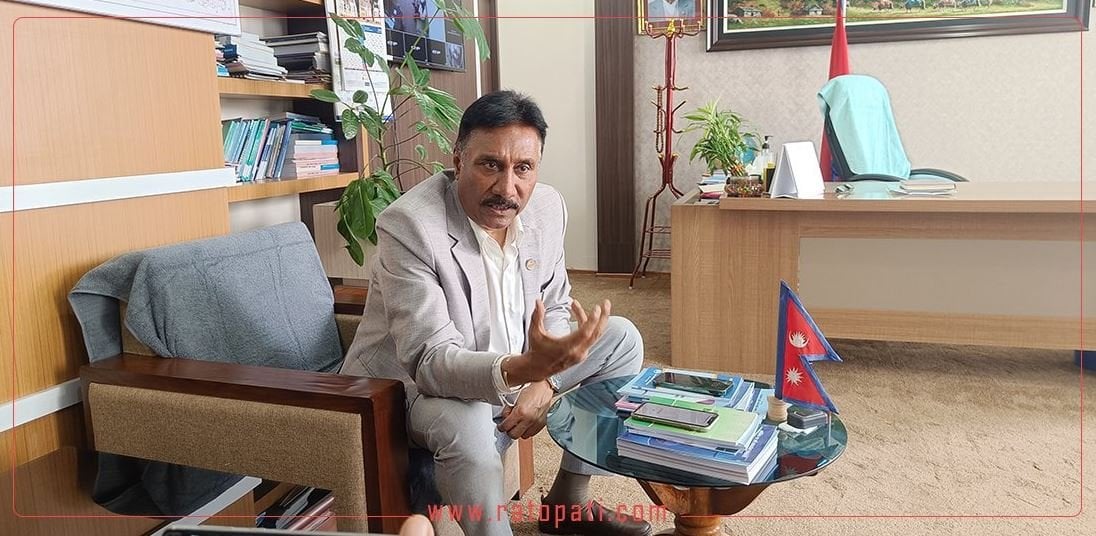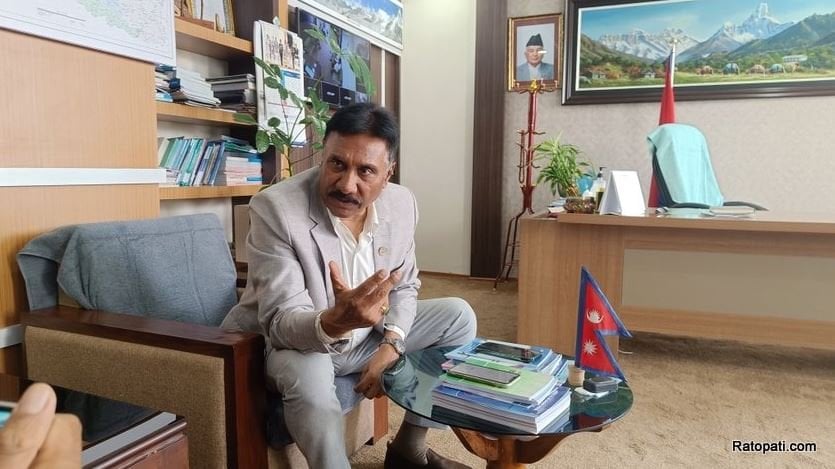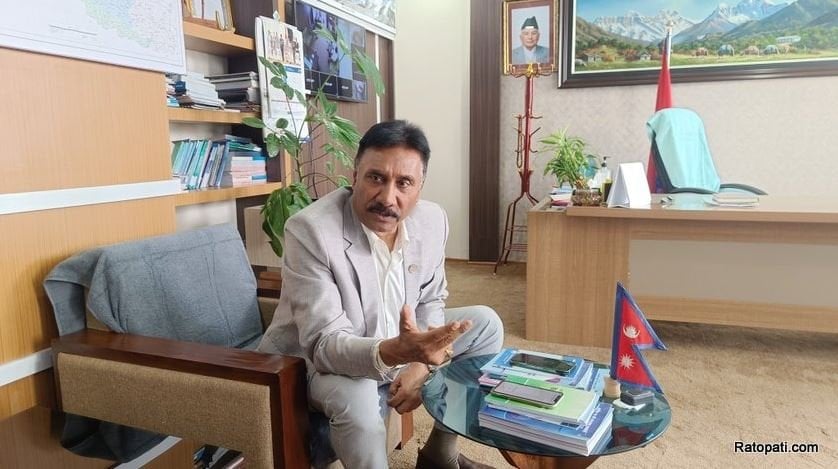"New minimum wage will be implemented anyhow" - Labour Minister Bhandari

KATHMANDU, Aug 24: The Ministry of Labour, Employment and Social Security has set new minimum wages from the 17th of July. The minimum salary has been changed to Rs 17,300 per month. It was previously set at Rs 15,000.
The government has also set the minimum wage as Rs 95 per hour for part-time workers. The minimum wage set by the government has gone to the implementation stage.
However, the main question is how much of it will be applied. Businessmen have raised objections on this matter and made it clear that it can't be implemented. The trade unions, on the other hand, have been demanding a minimum of Rs 25,000.
The government has said that the new minimum wage will be implemented after discussing with employers, trade unions and workers. The Ministry is confident that it will be implemented after all the work is done through the online system.
Ratopati journalist Krishna Singh Dhami has discussed with the Labour, Employment and Social Security Minister, Sharat Singh Bhandari, about the implementation of minimum wages. Here is an edited excerpt of their conversation:

The government has set the minimum wage. What strategies will be adopted to implement it?
We announced the wages through the Fixation Committee after discussing it with both sides. Both the employers and the trade unions have ownership in this regard. So we believe that they will accept it.
We have created a monitoring mechanism for its implementation. The important part [of implementation] is the online system. We have created a Law Enforcement Management Information System (LEMIS) so that all the activities of the labour department are done through an online system.
We have been providing information through various social networks. We have also established a call centre for this purpose. Similarly, we have added a Social Security Fund. We expect to implement all of these mechanisms.
There is a risk of losing your job when reporting or complaining [about the pay]? How do we fix this?
As much as we are working with the monitoring mechanisms, there has been a lack of public awareness so far. The minimum wage is set, but there is no information about how much is being given, or how much is being taken.
There were also very few places where you could file a complaint. Earlier, if you complained to someone, you would be risking getting fired. Now there is a system where you can file a complaint without revealing your identity. So that's not a problem anymore.

You admitted that Nepalese people are forced to go abroad due to the lack of social security in Nepal. Will the new minimum wage stop this?
The current minimum wage isn't set for the living situation. What happens is that the minimum wage is connected to the economic situation of the country. Even the earlier wage of 15,000 was not enough.
The two-year period [of minimum wage] is determined by the economic growth and inflation into account. It isn't set by just one side. The employer should also be in a position to give the wage. The higher the employer's capacity, the higher the salary. If the Gross Domestic Product of the country increases, the wages will automatically increase.
If there are problems between the workers and the employers, the Minimum Wage Fixation Committee will have to do their homework and increase it after two years.
Everyone is facing hardships due to the country's economy. There is no way to increase it [minimum wage] more than this in the current situation.
There is a labour court for labourers. Due to the pile of cases, the court doesn't seem to be able to give verdicts. Will there be any improvement on this?
There are two things in this matter. Before, you were required to file a case physically. Now you can do it online. There is no requirement to be present physically. Some cases can be solved by the [Labour] Department itself. The cases that were unable to be solved will go to the Court. The problems can be solved automatically if the Department is strengthened.
In the case of the Labour Court, it needs to be decentralised. We are doing homework to expand the Labour Court everywhere.
We are also considering expanding [the Labour Court] just like the District and High Courts. If the Labour Court, which is currently centred in Kathmandu, can be expanded to lower levels, the pile of cases will be reduced and resolved quickly. Now we have taken to automation to solve all these problems.
I've been saying this since the beginning, the Labour Department has become very weak. It has to be strengthened in terms of manpower and resources. It may take a while. Then the improvements will begin to appear.


Leave Comment